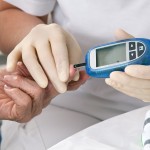
Pancreatitis is an inflammation of the pancreas that’s often a precursor to pancreatic cancer.
Results of the study were published online in the medical journal JAMA Internal Medicine. Researchers concluded that sitagliptin and exenatide, sold respectively under the names Januvia and Byetta, contribute to the formation of lesions and the proliferation of ducts in the pancreas.
Both Januvia and Byetta are among a new class of diabetes drugs called glucagon-like peptide-1-based therapies (GLP-1), designed to control blood sugar levels.
The news release notes that animal studies and reports to the U.S. Food and Drug Administration had already alerted physicians and regulators to the risk of pancreatitis from GLP-1 therapies. But the according to the Johns Hopkins researchers, their study is the first to accurately measure the magnitude of the risk, taking into account other factors such as gallstones, obesity and heavy alcohol use.
The release quotes study leader Sonal Singh, M.D., M.P.H., as saying that side effects such as acute pancreatitis may not appear until a drug is already approved and in widespread use.
According to Johns Hopkins, patients using the medications should seek immediate treatment if they suffer symptoms of pancreatitis such as nausea, vomiting that won’t stop and abdominal pain.
You should consult with a doctor if you have any ongoing symptoms or health concerns, and before making any changes in medication. You should also consult with a Lopez McHugh attorney if you or a loved one was diagnosed with pancreatic cancer after taking Januvia or Byetta.
See the story here:
